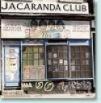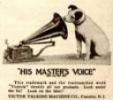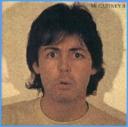 If you read any of the published biographies of the Beatles sooner or later you are very likely to run into the comment that Paul was a “social climber.” It is true that Paul’s family hovered on the line between working class and middle class and that his parents wanted very much for him to “better himself.” Certainly they didn’t think that was social climbing. Meanwhile the family lived in council houses (what in the US would be called public housing) provided at little cost as a part of the pay for Mary McCartney’s job as a nurse. They moved several times to better and safer locations and the last house was so “modern” for Britain at the time that it had an indoor bathroom.
If you read any of the published biographies of the Beatles sooner or later you are very likely to run into the comment that Paul was a “social climber.” It is true that Paul’s family hovered on the line between working class and middle class and that his parents wanted very much for him to “better himself.” Certainly they didn’t think that was social climbing. Meanwhile the family lived in council houses (what in the US would be called public housing) provided at little cost as a part of the pay for Mary McCartney’s job as a nurse. They moved several times to better and safer locations and the last house was so “modern” for Britain at the time that it had an indoor bathroom.
John Lennon, as most of us know, grew up in a good neighborhood in a nice, middle-class home (also with an indoor bathroom) despite his later claim of being working class. Both John and Paul were urged to study hard so they would be able to get good jobs and were constantly pressured to avoid using the Liverpool accent but to speak more correctly. Once John hustled his Aunt Mimi out of an art exhibit where Stu’s winning painting was hung when she said, “What’s that supposed to be?” Both John and Paul spoke with a scouse accent deliberately and both were easily able to assume a more posh accent.
I feel that the best way to look into the question of whether or not Paul was a social climber is to examine his record in contrast to John the self-declared workingman.
Paul’s first serious girl friend seems to have been Dot Rhone. Dot lived in a good neighborhood only because the house had been left to her parents and living there was less expensive then renting a place. There seems to be no doubt that Paul knew of the family’s problems including her father’s drinking.
At about the same time, John began dating Cynthia Powell, who lived in quite a good neighborhood. Her father had been quite well off although after his death she and her mother had little money to spare. Cyn dressed very well and spoke posh.
John hung out with Stu at art school and followed him in admiring the American “Beat Poets” and other intellectual activities. Paul occasionally joined them at parties where he tried to disguise his youth and inexperience by projecting a “French” air.
George, in Anthology [Tape 1, 37:300] “We didn’t have uniforms and Johnny Gentle had this posh suit…” The band also bought matching jackets before leaving for Hamburg for their first gig there. Earlier, the Quarrymen had a prescribed outfit that included white sport coats for John and Paul. Brian’s switching them into suits was not as major a change as John later makes it sound.
John, as well as Paul and George, thought that Brian Epstein’s air of the upper class (and his money) would be good for the Beatles.
Astrid, who became Stuart’s fiancé (John was also very interested in her) came from a good family and lived in a good neighborhood. She was another art student and her good taste and interest in the modernist movement in Europe gave her a very elegant air in herself.
I believe that the first surfacing of the accusations that Paul was a social climber came when he began dating Jane Asher (and living in her house though this wasn’t widely known). The Asher’s did live in a nice neighborhood particularly favored by doctors, very middle class. Every member of the family worked but they don’t seem to have lived in a particularly expensive manner. Mrs. Asher cooked though they no doubt had someone come in to do the housework. Dr. Asher used the house as his office as well as the family home. Their friendships appear to have ranged very widely from middle class “country” to London intelligencia (Peter Asher, the son of the family and a good friend of Paul’s was very much a part of this crowd.) Jane and Paul went to theatrical first nights and stayed with friends of the family in the country but the aristocracy doesn’t seem to have been a feature of their life.
All the Beatles knew Marianne Faithful and Tara Brown who had aristocratic connections but who were part of the club scene in London.
John, George and Ringo all bought houses in what was called the stock-broker belt – in other words the new rich making up part of the upper middle class. John and Ringo’s houses were decorated professionally in “early rock star.”
Paul’s house in London is in an area called “St. John’s Wood.” It appears to have been a nice but not particularly upscale neighborhood. I’m sure that now it’s very, very expensive now due to its location. It’s my impression that the house was a good buy although it did need work before Paul could move in. Paul and Jane chose the furniture that is described as good but neither expensive nor necessarily in matched sets. Most biographers mention that Paul kept a lace cloth over the dining table; a custom not usual in the middle or upper classes. If Paul failed to realize the class distinction of this I’m sure it would have been noticed and mentioned by Jane.
Paul’s farm in Scotland was at least in part an investment and tax advantage. It remained unimproved until late 1969 when he and Linda stayed there for several months. I believe it is on the plain side still.
Linda Eastman’s father was a self-made man who lived very well on his earnings as a lawyer specializing in representing artists and musicians. Her grandfather immigrated to the US from Poland. Linda’s mother was one of the heirs to a department store chain and died when Linda was in her teens. Linda may have had an allowance, in any case her father expected her to either go to school or support herself, which she did, becoming a free-lance photographer. Some time after they married, Paul bought a home outside the city, feeling it would be more suitable for their children. It was neither large nor fancily decorated.
Yoko Ono, on the other hand, was the daughter of a wealthy samurai family and in school she was friends with the son of the Emperor pf Japan. After their marriage, John bought a very large manor called Tittenhurst Park and spent a great deal of money in alterations. After he and Yoko moved to the US they owned several houses in various parts of the country, a yacht, and as many as 6 apartments in the very expensive luxury Dakota complex.
None of the Beatles appear to have used their fame as an entry into a posh social life – the primary goal of most social climbers. While Paul was inarguably impressed with the Asher’s lifestyle, it wasn’t their social lives but the way they organized their day and their interest in what was new and interesting that most caught his attention. Although if any of the Beatles had been interested in social climbing, John appears to be well in the lead, it’s my conviction that they retained their earlier focus on money enough to support personal choices and lifestyle without any thought of achieving some special rank in society. They turned down invitations to star at Royal Command Performances after the first and totally avoided invitations from ambassadors and the like. They did once accept an invitation to attend an event connected with the university at Oxford. Barry Miles’s impression of Paul’s social life shows him primarily participating in the club scene like many of the other British rock musicians and with the people involved with the Indica bookstore and gallery.
” Bettering yourself” unavoidably has some tinge of social climbing although the immediate rewards in more money and a better home in a less violent neighborhood are the more important. True social climbing tends to be about going to fancy parti es and hobnobbing with the rich and famous. The Beatles were the rich and famous but they show no signes of seeking to mix socially witih either the aristocracy or old money — which they certainly could have done if they wanted to.
I suspect the whole thing about Paul’s alleged social climbing began with one of the early magazing or biography writers making the comment and everyone from there on out copying it without a thought of whether there was any evidence to support it or not.
 I clearly remember my husband telling me about some new English band that was causing quite a stir back in February, more or less, of 1962. I remember because I went over how they spelled the name and how it might be pronounced in the shower and we only lived in that house with that particular shower for a few months. We were both art majors and members of the old Bohemia that immediately preceded the famous 60s counter culture. Not quite Beat Generation – that has mostly petered out and not completely a part of the foundation for the next. At any rate it was a group that paid attention to what was happening in politics, in the arts and letters, and in entertainment. I remember only that they were English, in England and that there was something different about them.
I clearly remember my husband telling me about some new English band that was causing quite a stir back in February, more or less, of 1962. I remember because I went over how they spelled the name and how it might be pronounced in the shower and we only lived in that house with that particular shower for a few months. We were both art majors and members of the old Bohemia that immediately preceded the famous 60s counter culture. Not quite Beat Generation – that has mostly petered out and not completely a part of the foundation for the next. At any rate it was a group that paid attention to what was happening in politics, in the arts and letters, and in entertainment. I remember only that they were English, in England and that there was something different about them.












Recent Comments